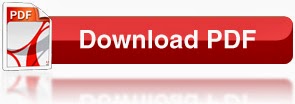PharmaTutor (April- 2014)
ISSN: 2347 - 7881
Received On: 11/01/2014; Accepted On: 23/02/2014; Published On: 01/04/2014
Author: Languluri Reddenna
Department of Pharmacy Practice,
Rajiv Gandhi Institute of Medical Sciences,
Kadapa, Andhra Pradesh, India
reddennapharmd@gmail.com
ABSTRACT:
Rational use of drugs can be defined as prescribing the right drug, in sufficient dose for the adequate duration and suitable to the clinical requirements of the patients at least cost. Causes of irrational use comprise not have of knowledge, skills or self-determining information, unhampered accessibility of medicines, overburden of health personnel, unsuitable promotion of medicines and earnings motives from selling medicines. In appropriate drug use can have dire consequences; it has been associated with hospitalization and even caused deaths of inpatients in health care facilities. A variety of situations and circumstances promote irrational use of medicines. Rational use of medication saves lives, confines undesired toxicity, adverse events and maximize on the benefits that can be imitative from best use of medications. According to surveys conducted in 2004 by HAI Africa and WHO in 11 Sub-Saharan Africa countries in 2004, the average accessibility of the essential medicines in public health facilities was below 70%. Communication between professionals and consumers is essential to the enhancement of rational use of medicines. It is essential to recommence collaboration of physicians and pharmacists concerning accurate and competent drugs prescribing. Governments, private health care institutions, entity health care providers and patients all have an accountability to endorse rational use of medicines. Professionals should provide information to the customers about the name of the medicine, the intention for which the medicine is being taken, dose, frequency of use, and duration of use.
How to cite this article: L Redenna, Rational use of Medicines: Can We Promote, PharmaTutor, 2014, 2(4), 43-49
[ABSTRACT WITH CITATION] [VIEW AS HTML]

REFERENCES:
1.Shivhare S. C., KunjwaniH. K., ManikraoA. M., and BondreA. V., “Drugs hazards and rational use of drugs: a review,” Journal of Chemical and Pharmaceutical Research. 2010; 2: 1106–112.
2.Gautam, C.S. Aditya S. Irrational drug combinations; Need to sensitize undergraduates. Ind. J. Pharmacol; Vol. 38, 3, June 06, 169-170.
3.Rational use of drugs Gurbani N K., Sharma Rameshwar and Dandiya P.C., Pharma Times, May 2000, 18-33.
4.The rational use of drugs, Report on the conference of experts Nairobi, 25-29 Nov. 1985 sponsored by W.H.O. Geneva.
5.Improving drug use Editorial, Action programme on essential drug No. 23 1997 Conference of Experts. Geneva: World Health Organization; 1985.
6.World Health Organization Promoting rational use of medicines: core components. WHO Policy Perspectives on Medicines no. 5. Document WHO/EDM/2002.3. Geneva, WHO, 2002. Available at URL: who.int/medicines
7.International Network for the Rational Use of Drugs (INRUD), 2nd International Conference for Improving the Use of Medicines (ICIUM 2004), Policies and Programmes to Improve Use of Medicines: Recommendations from ICIUM 2004, URL: mednet3.who. int/icium/icium2004/recommendations.asp
8.World Health Organization, “International Conference for Improving the Use of Medicines”, Essential Drugs Monitor; 1997; 23:6-12.
9.World Health Organization, Database on medicines use in developing and transitional countries; work in progress. Department of Medicines Policy and Standards, WHO, Geneva. Initial results presented at the 2nd International Conference for Improving the Use of Medicines, Chiang Mai, 2004. Available at URL: icium.org
10.World Health Organization, Rational use of medicines: progress in implementing the WHO medicines strategy, EB118/6, 2006; WHO Geneva; URL: who.int/gb/e/e_eb118.htmlInternational Network for the Rational Use of Drugs (INRUD), 1st International Conference for Improving the Use of Medicines (ICIUM 1997), URL: icium.org
11.International Network for the Rational Use of Drugs (INRUD), 2nd International Conference for Improving the Use of Medicines (ICIUM 2004), Policies and Programmes to Improve Use of Medicines: Recommendations from ICIUM 2004, URL: mednet3.who. int/icium/icium2004/recommendations.asp
12.World Health Organization. Ethical Criteria for Medicinal Drug Promotion. Geneva: World Health Organization; 1988.
13.World Health Organization. Guide to Good Prescribing. Geneva: World Health Organization; 1994.
14.World Health Organization, Promoting rational use of medicines: core components. WHO Policy Perspectives on Medicines no. 5. Document WHO/EDM/2002.3. Geneva, WHO, 2002. Available at URL: who.int/medicines
15.World Health Organization, Database on country pharmaceutical situations; work in progress. Department of Technical Cooperation for Essential Drugs and Traditional Medicines. Geneva, WHO. Some results presented in the document WHO Medicines Strategy: countries at the core 2004-7. Document WHO/EDM/2004.5. Geneva, The challenge of chronic conditions: WHO responds. BMJ 2001: 323: 947.
16.WHO Guidelines for Drug Donations Revised 1999 (2nd edition). WHO/EDM/ PAR/99.4.
17.Lore W. Rational use of drugs: what is it and what are the pre-requisites for its fulfillment? Editorial .Healthline, Journal of Health 2006: 10(2): 15 – 16
18.Thuo HM, Ombaka E. Drug donation practices in East Africa. An exploratory study from mission health care facilities. Healthline, J of Health 2000: 4:2 – 11.
19.Nabiswa AK, Godfrey RC. Diagnosis and prescriptions for patients managed during a free healthcare day in Eldoret, Kenya. East Afr Med J. 1994:71:363 -365Health system in Transition, WHO, 2004.
20.The most popular errors when prescribing medicines, ISDB Newsletter, June, 2006.
21.Ten recommendations to improve use of medicines in developing countries. Health Policy and planning; 16 (1):13-20, Oxford University Press 2001.









